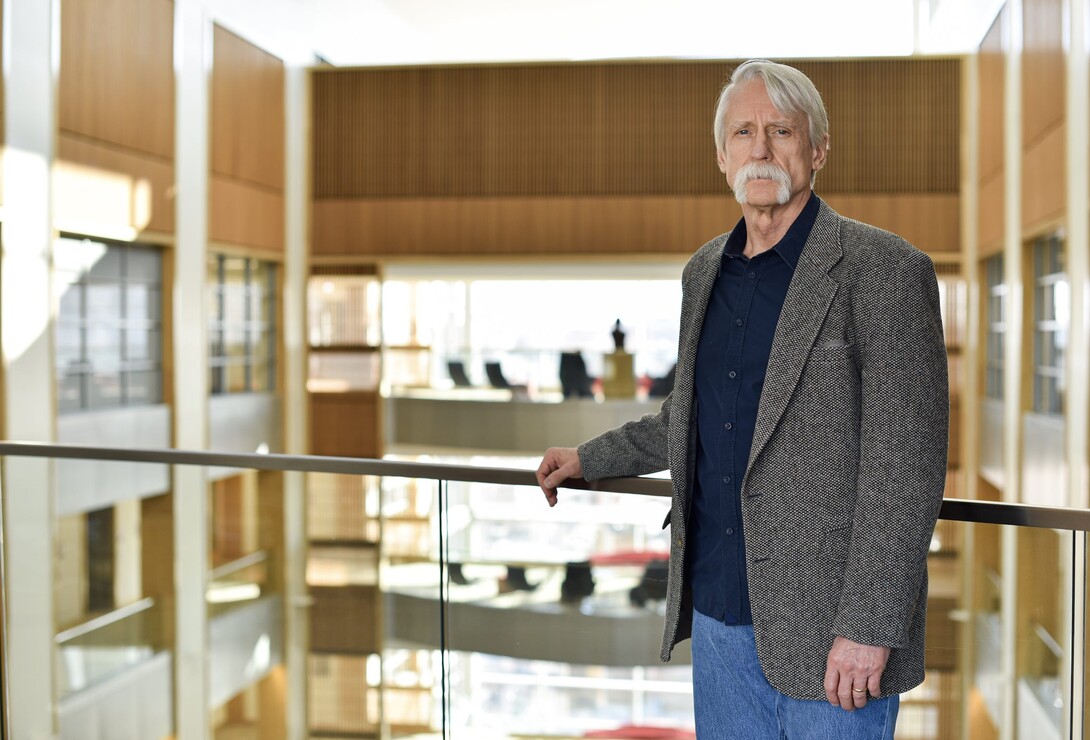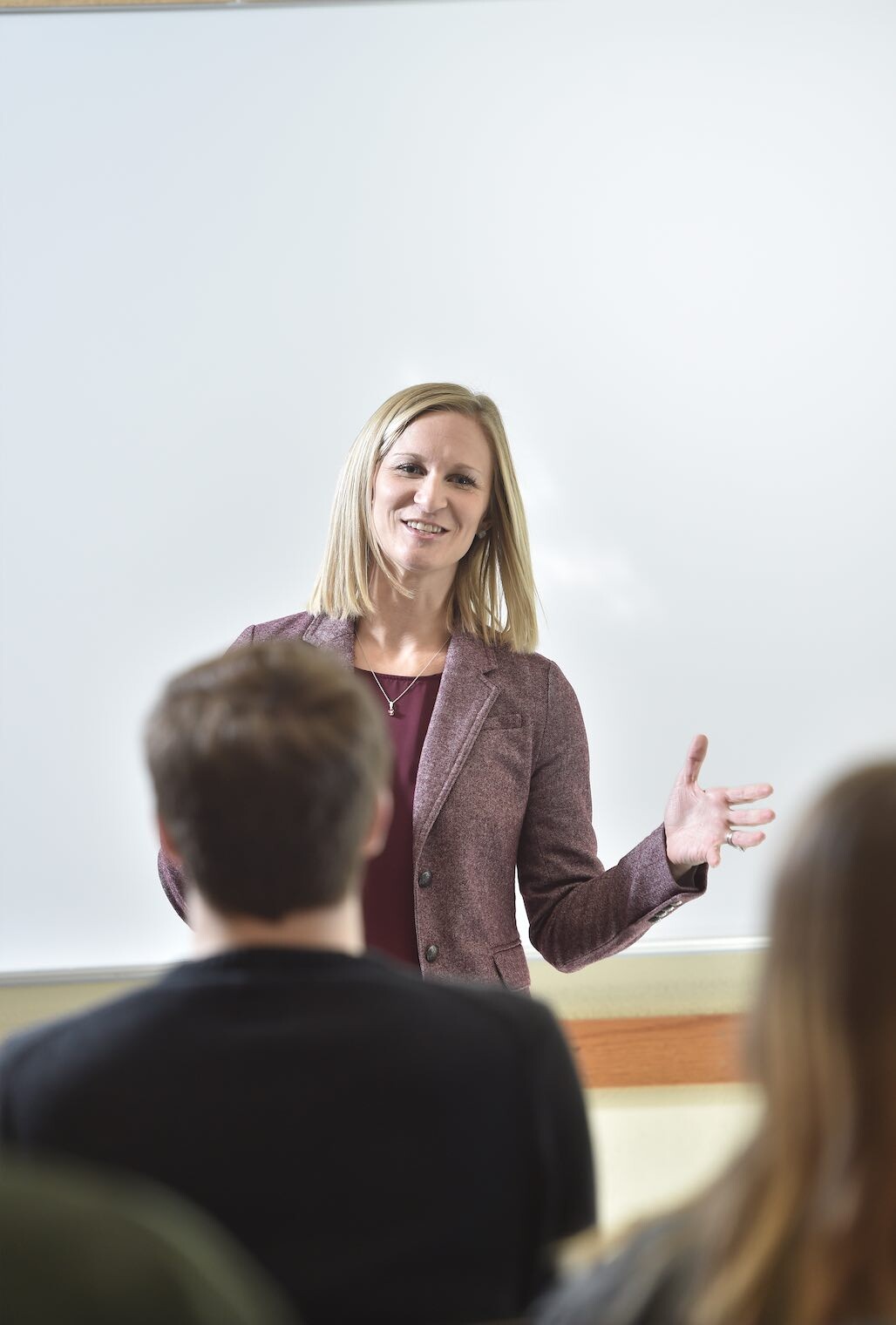
Since joining the the College of Business in 2013 as the first Delmar A. Lienemann Sr. Chair of Accounting, Tom Omer has elevated research at Nebraska while guiding doctoral students. Omer joined an elite group of academics who published in all six top accounting journals — with all six co-authored by former students he helped teach and mentor.
“Ph.D. students are the future of research, and I want to pass along anything that will make their careers better because they are prepared,” said Omer, who teaches seminars as the Ph.D. coordinator for the School of Accountancy. “We are social scientists, and when faculty begin to work with students to publish articles, that raises their stature and reduces the time spent trying to figure out what they want to do with their careers.”
Working with 34 doctoral students during his career at Nebraska, the University of Illinois Urbana-Champaign and Texas A&M University, Omer published with 26 students — with more under way. Omer notes that collaboration often leads to new ideas for future research.
“The best part of research is the intense form of teaching that occurs one-on-one. It might start with a co-author at your door asking a question about methodology and the answer turns into a paper idea,” said Omer. “That one-on-one research aspect of my job is what brings me to work and keeps me conducting research to try to address the questions that arise.”
Kathleen Harris, ’16, an assistant professor of accounting at the Carson College of Business at Washington State University, shared how learning from Omer helped her find top career placement after graduation.

“Not only were the coursework and seminars at Nebraska fundamental in preparing me for my first job, but the mentorship and collegiality motivated me each day. I worked closely with Dr. Omer on developing research, and he provided guidance and support to further my research capabilities. Much like an apprenticeship, this experience offered me an opportunity to refine my understanding of how to research and develop a portfolio,” Harris said.
In 2020, Omer published “Distraction Effect of Non-Audit Services on Audit Quality” in the Journal of Accounting and Economics with Erik Beardsley, a former student from Texas A&M who now serves as an assistant professor of accountancy at the University of Illinois, and Andrew Imdieke, assistant professor of accountancy at the University of Notre Dame. This was his fifth top journal placement.
His sixth happened in 2022 when he co-authored [“Does Task-Specific Knowledge Improve Audit Quality: Evidence from Audits of Income Tax Accountants”(https://www.sciencedirect.com/science/article/abs/pii/S0361368221000982) in Accounting Organizations and Society, with Harris and Nathan Goldman, associate professor of accountancy at North Carolina University.
As part of what he calls an “unknown in size but somewhat exclusive” group of published researchers in the top six accounting journals, Omer announced his upcoming retirement in May 2023. His plans after teaching include learning new methodologies, Python programming and spending more time with his children and grandchildren, while continuing his research.
“My goal is to continually find and understand the means of addressing questions in my discipline that go unanswered or have multiple conflicting answers. Mixed answers can result from methodological differences, design differences or other factors that limit the conclusion validity of results. I teach the introductory Ph.D. seminar and in it, I think about what students need to know but also how to refine my thinking and about how to address these issues in my own work. If I have learned anything it is that learning to be adaptive is a lifelong process and failing to adapt is not an option,” Omer said.
Omer answered the following questions to help break down his latest research.
What’s This Research About?
The accounting literature looks toward the auditor’s expertise when considering the quality of audits performed. This study asks: When auditing the tax accounts of audit office clients, are high-quality audits (lower misstatements in the tax accounts) related to tax knowledge expertise or the expertise of the task performed? It asks the question, are audits of the tax accounts of clients in different industries dependent on the tax expertise of the audit team (i.e., there is an industry tax expert on the team for each specific industry), or does it depend on the task (the auditing of the tax accounts) expertise in the audit office? We ask this question about the audit office, not individual auditors. We find that it is the expertise in auditing the accounts and not the tax expertise in particular industries that provide better audit quality.
Why Does It Matter?
It is important for several reasons. First, it adds an additional explanation of what expertise might mean when considering its effect on audit quality. Many prior studies measure expertise based on dollars of revenue in a particular industry in a particular city or metropolitan statistical area to proxy for expertise. This study suggests that these are particularly noisy proxies of expertise and extends our notions of the different expertise types that might benefit the quality of audit services. Second, the measures of expertise used in the literature provide inconsistent results. This might help future research consider characteristics of audit offices that might indicate higher quality audits that are not based on proxies for expertise that are revenue driven.
Who Can Use It?
We expect that other researchers in the audit literature might use the results to discern better the factors that produce higher or lower audit quality. Practitioners might use this to allocate audit office resources differently when planning an audit engagement.








